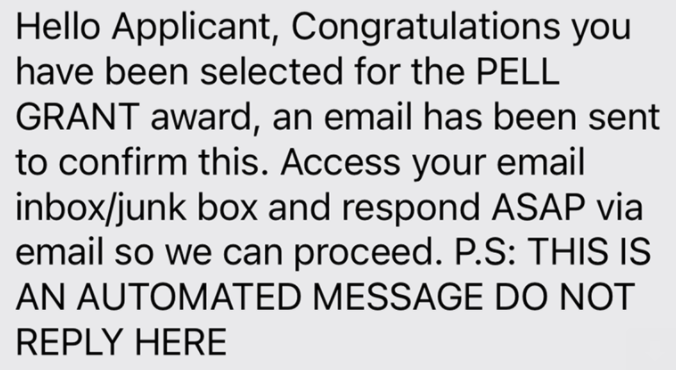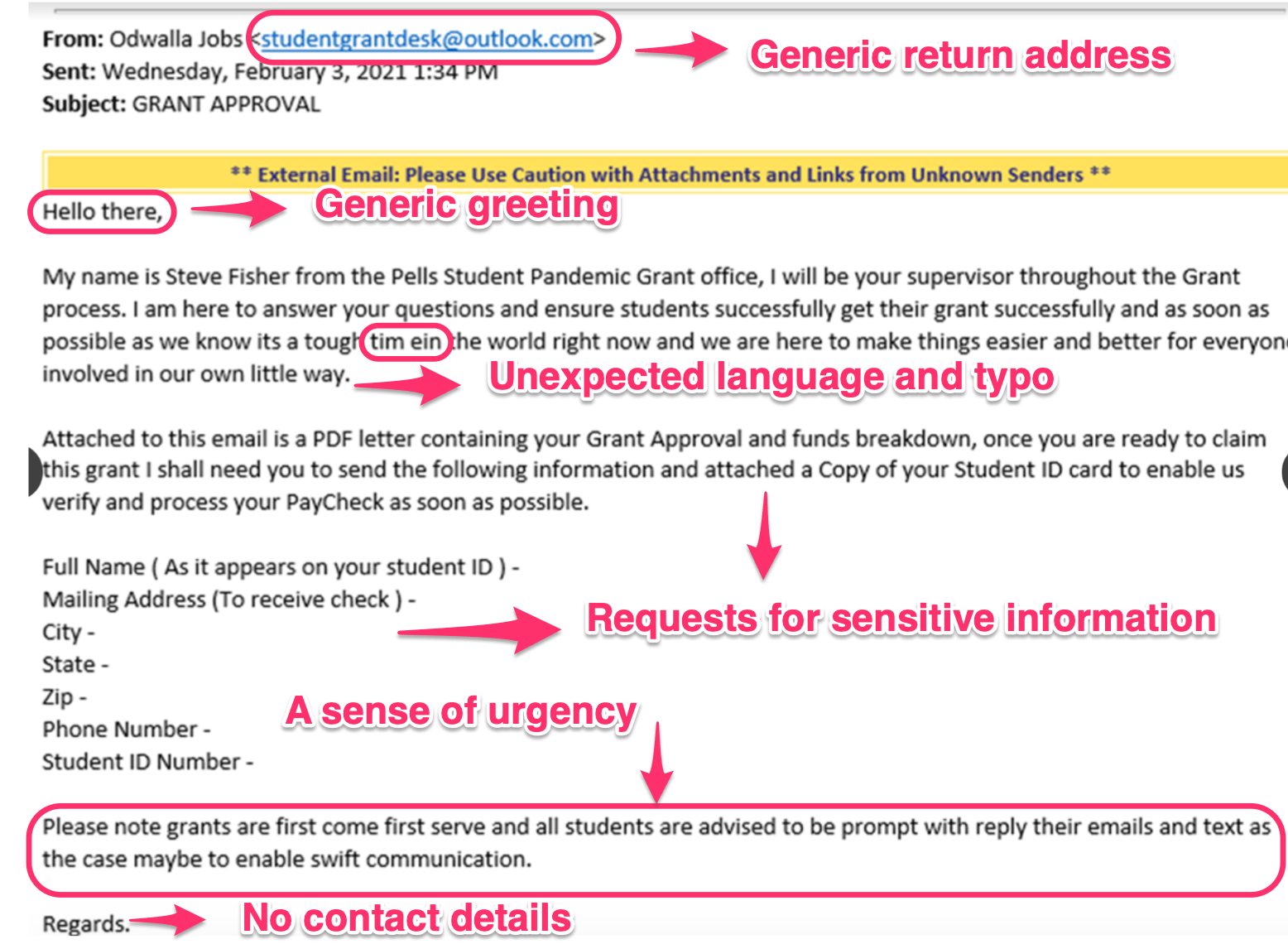Please be advised of two phishing scams, one which targets students with Pell Grant funds, and the other, which targets students with pandemic relief promises.
The Pell Grant campaign commences with a text message, like the one shown below, which notifies students of a Pell Grant award and an urgent need to respond to a confirmation email.
The following is an example of the email a student receives moments later. Please note that the phishing indicators include: a generic return address a generic greeting, unexpected language, a request for personal information, a sense of urgency, and no contact details provided. Additionally, the referenced attachment may be malicious.
Another phishing campaign used a compromised student account to send an email to other students, which contained a link to apply for a purported Student Pandemic Grant. Recipients who clicked the link were asked to supply personal information.
Reminders:
- Please be reminded to refrain from clicking links or opening attachments in unsolicited/unexpected messages. Remember, simply clicking a malicious link or attachment can trigger the installation of malware.
- When in doubt, verify with the sender using a trusted phone number.
- Remember your personal information has value, protect it! Never provide personal/sensitive information over email or other forms of electronic messaging, or in response to unsolicited phone calls.
- A common scam tactic is to lure victims with tempting offers/promises. If it sounds too good to be true, it most likely is!
- Similarly, a sense of urgency is often used by scammer to dissuade deliberation and impel victims to take the desired action(s).
- Most professional communications. contain complete sender contact details.

